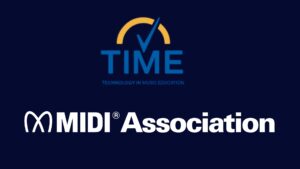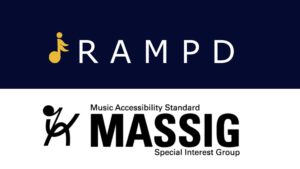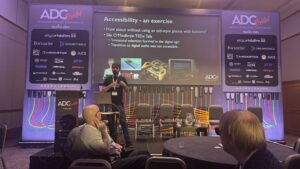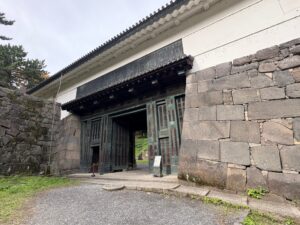Meet The Members of The Music Accessibility Standard SIG
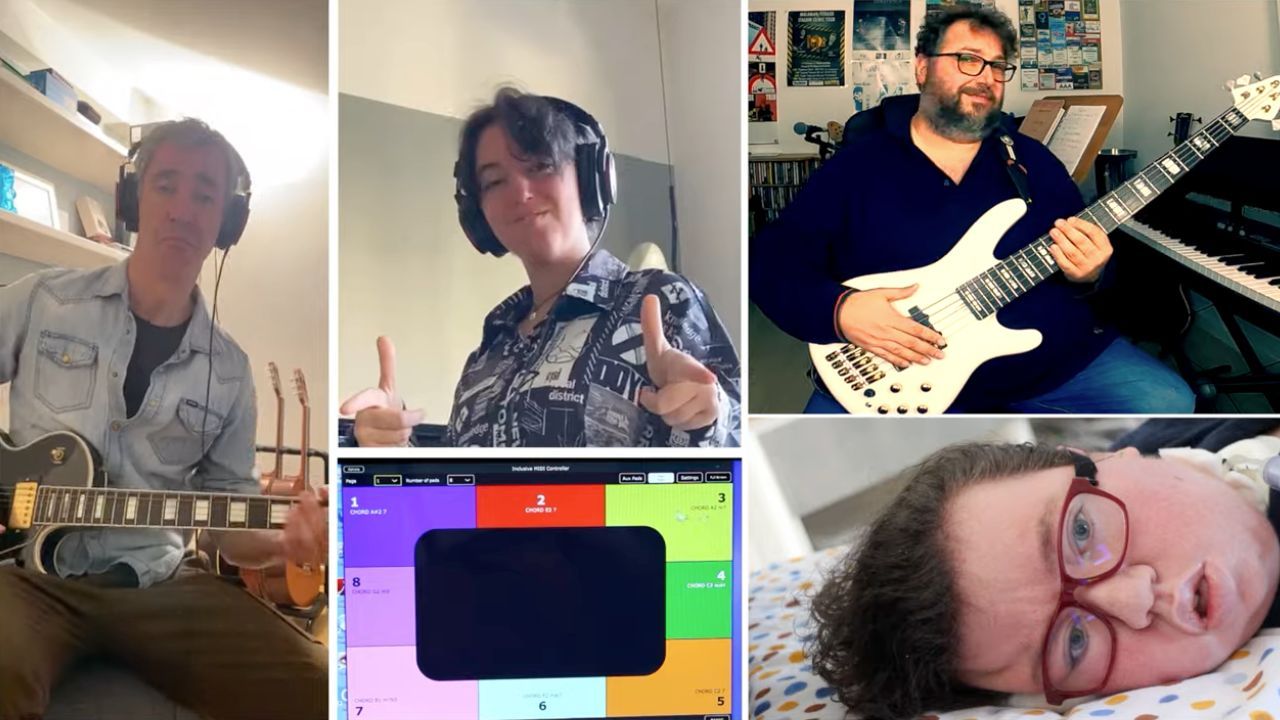
We thought it was time to introduce the members who regularly attend these meetings so you can get to know their backgrounds and why they are passionate about making music making accessible to everyone. The Music Accessibility Standard Special Interest Group in The MIDI Association has been meeting regularly for over a year now every other Wednesday at 8 am Pacific Time.
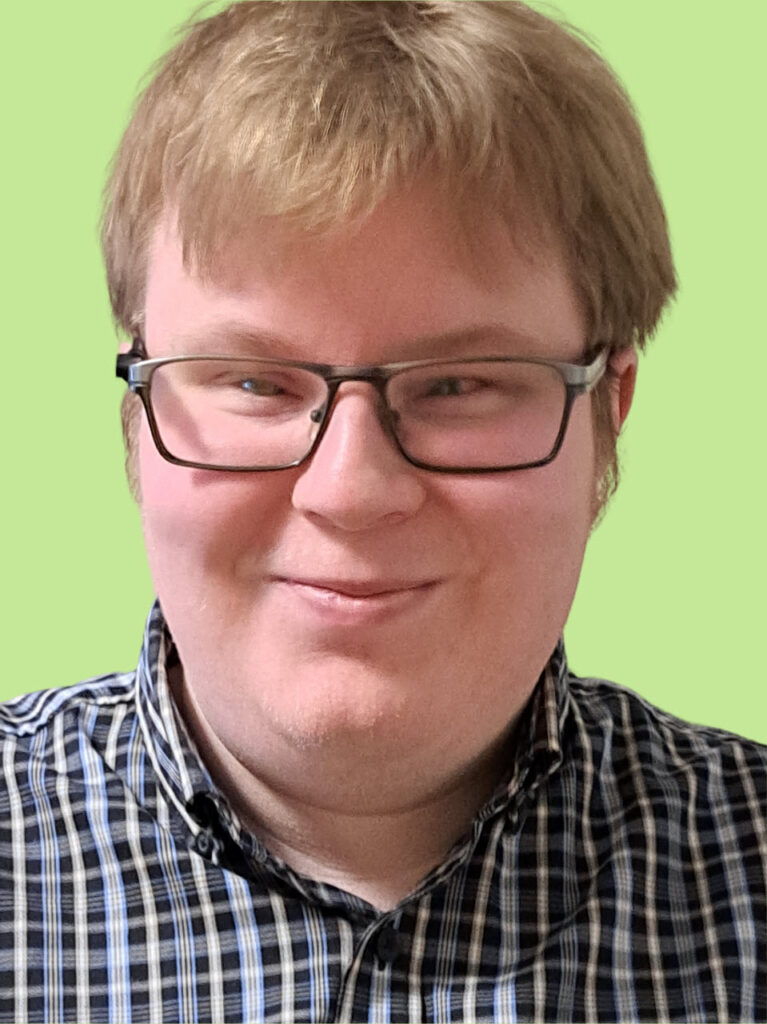
Juho Tomanien- MASSIG Chair
Juho Tomanien is a student from Finland who had a vision for a Music Accessibility Standard. Just because you are blind, doesn’t mean that you can’t have a vision. Take Stevie Wonder whose Inner Visions album is considered one of the greatest records of all time.
Juho reached out to the MIDI Association after someone of KVR Audio suggested that perhaps The MIDI Association might be a good place to start up a conversation about Accessibility.
It turned out that there were already a number of MIDI Association member companies who had been working with accessibility consultants like UK producers/recording engineers Scott Chesworth and Jason Dasent and had already been adding accessibility features to their products. Juce which runs the Audio Developer Conference was also already onboard and had been hosting accessibility workshops at ADC for several years.
In 2023 at the ADC conference Jay Pocknell from the Royal Institute for the Blind hosted a packed session of developers trying to learn how to use Juce to add accessibility features to their products.
MIDI Association members from Audio Modeling, Arturia, Native Instruments, Roland and more have joined together with The Royal Institute for the Blind and visually impaired producers and musicians like Juho, Scott Chesworth Jason Dasent and more to discuss how MIDI 2.0 might enable Music Accessibility and make making music accessible to everyone.
Jay Pocknell-SoundWithoutSight.org and the Royal Institute For The Blind
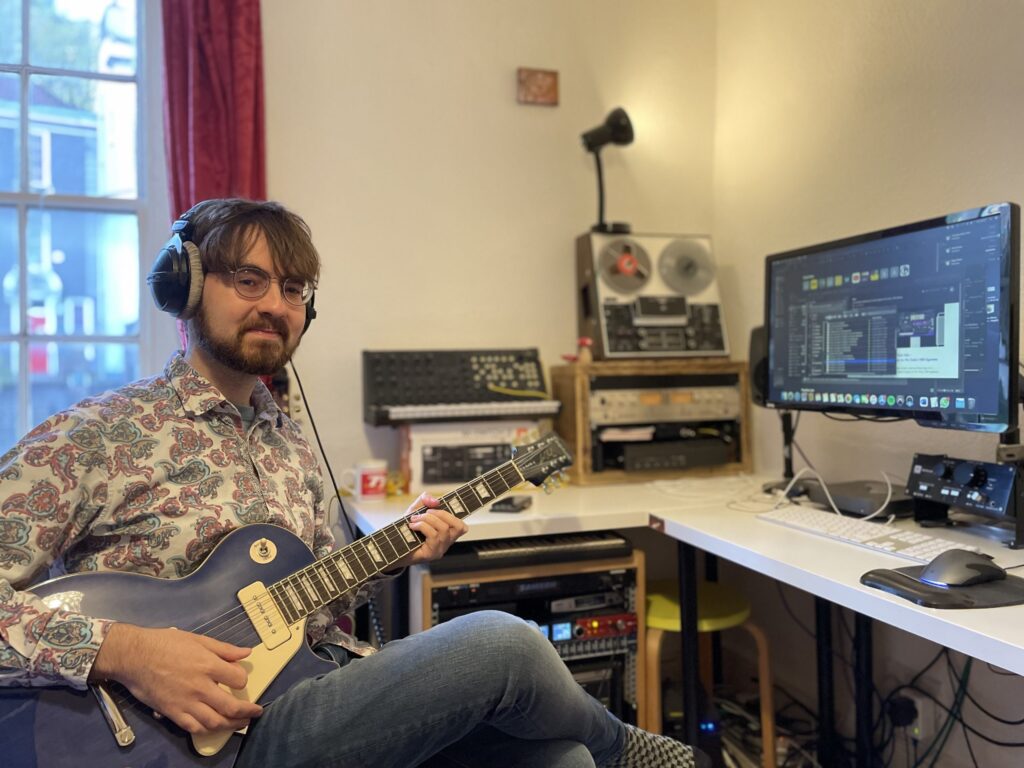
As a sight-impaired musician, I first considered plans for a project in 2018. I was achieving my dream of working in commercial recording studios but also found that there were significant barriers to accessing the equipment and culture. I became aware that my fully-sighted peers could be more agile within the industry. Rather than becoming frustrated, I wanted to use my experience as motivation to inspire change. I refused to believe that I was the only person to have struggled.
Jay Pocknell, https://soundwithoutsight.org/
Vanessa Faschi, MASSIG Vice Chair Person
Ph.D. student at the Music Informatics Laboratory at the University of Milan, in collaboration with Audio Modeling.
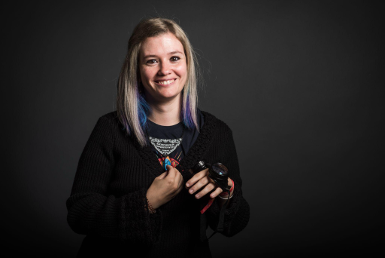
From a young age, I was captivated by the transformative power of music. However, as I delved deeper into the world of digital instruments, I began to notice a glaring gap in accessibility. The tools that are supposed to empower creativity often come with barriers that exclude many from fully engaging in music-making. This realization fueled my desire to create digital instruments that are not only innovative but also inclusive, designed to be accessible and usable by everyone, regardless of their physical abilities or technical expertise.
Through my research, I aim to challenge the status quo by designing instruments that are adaptable and intuitive, ensuring that the joy of music is within reach for all. To deepen my understanding and to extend my vision of accessibility, I joined MASSIG (the Music Accessibility Standard Special Interest Group). Being part of this community has allowed me to connect with musicians who face real challenges in their everyday interactions with digital instruments. These interactions have been invaluable in shaping my research, providing me with insights into the practical needs and problems that must be addressed.
My journey is driven by the belief that music should be a universal language, and to achieve that, the tools we create must be as inclusive as the art form itself. As I continue my work, I am committed to breaking down barriers and ensuring that every musician, regardless of their background or ability, has the opportunity to express themselves through digital music.
Short bio:
I’m Vanessa, and I am currently pursuing a Ph.D. at the Music Informatics Laboratory at the University of Milan, in collaboration with Audio Modeling. My passion for music and technology has led me to a research project that sits at the intersection of both fields: the ideation and development of accessible digital music instruments.
Emanuele Parravicini, co-founder and CTO of Audio Modeling
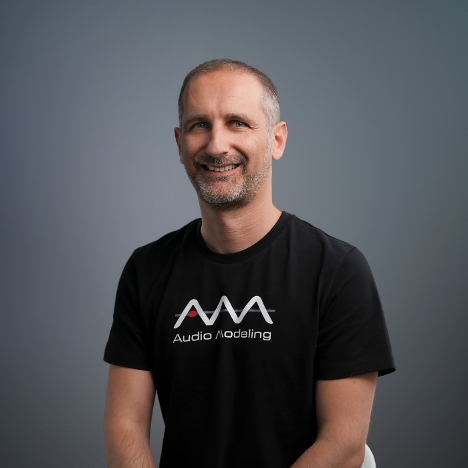
Emanuele Parravicini is the co-founder and CTO of Audio Modeling. He holds a degree in Telecommunications Engineering and a Master’s in Information Technology. With a deep passion for music and music technology, Emanuele is a strong advocate for inclusivity, particularly in the realm of musical technology.
At Audio Modeling, he leads the development of innovative products, including the UniMIDI Hub, a software platform designed to integrate various accessible devices. This platform enables real-time control of digital instruments or music production software by multiple users simultaneously, whether they are individuals with disabilities, students, amateurs, or professionals.
Emanuele’s commitment to making music technology accessible to everyone is the driving force behind his involvement in the MASSIG – Music Accessibility Standard Special Interest Group. His expertise and dedication to inclusivity in the field align perfectly with the group’s mission.
I am Emanuele Parravicini, co-founder and CTO of Audio Modeling. I hold a degree in Telecommunications Engineering and a Master’s in Information Technology. With a deep passion for both music and music technology, I am a strong advocate for inclusivity, especially within the realm of musical technology.
In my role at Audio Modeling, I oversee the development of our products, including one of our latest projects, the UniMIDI Hub. This software platform aims to integrate various accessible devices, allowing real-time control of digital instruments or music production software by multiple users at once, whether they are individuals with disabilities, students, amateurs, or professionals.
My commitment to making music technology accessible to everyone is what led me to join the MASSIG – Music Accessibility Standard Special Interest Group. I believe that inclusive technology can empower people to create and enjoy music, and I am dedicated to contributing to this important mission.
Emanuele Parravicini
Haim Kairy- CEO – Arcana Instruments
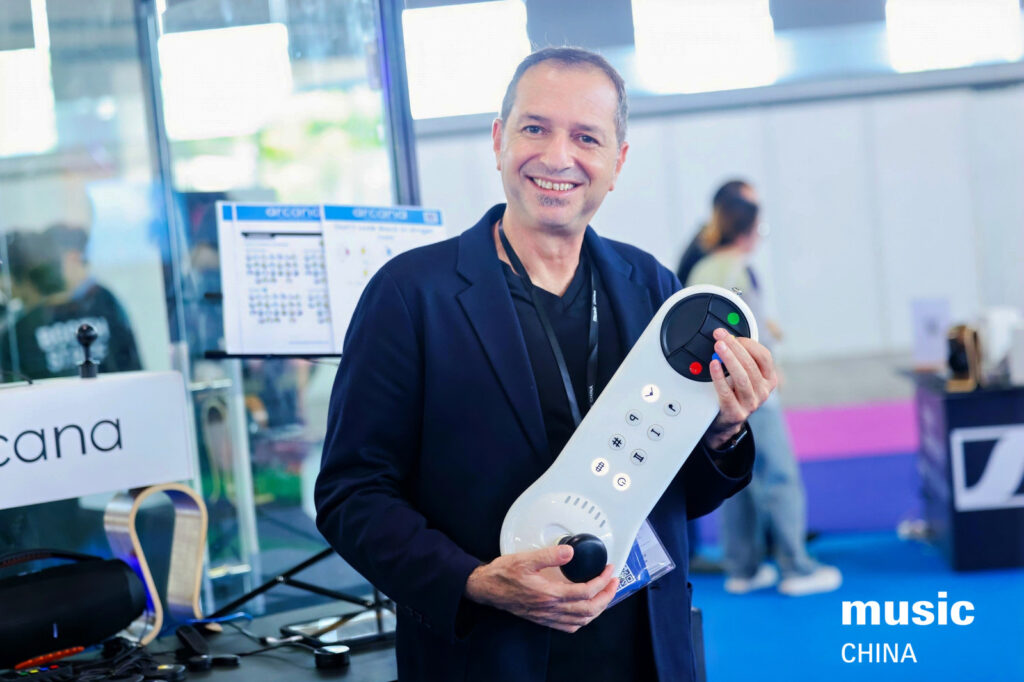
I am an engineer, software developer, maker, entrepreneur, and musician, currently serving as co-founder and CEO of Arcana Instruments. Throughout my professional career in technology startups and consulting for banks, energy, and insurance companies, I never found a true sense of purpose. Music has always been central to my life, playing, recording, producing, and performing. Without it, I would surely be lost.
Three albums (of many) that were life-changing for me: The Beatles’ Sergeant Pepper’s, John Coltrane’s A Love Supreme and Mr. Bung le, produced by John Zorn.
Eight years ago, everything changed when my friend Boaz, a music-school teacher, showed me a video of Gil, a 12-year-old girl with cerebral palsy, trying to play the guitar. Unfamiliar with CP, I was moved by her passion and frustration as she struggled to control her hands and fingers. Realizing that no suitable instrument existed for her, we were heartbroken. However, seeing Gil controlling her motorized wheelchair with a joystick inspired us to create an accessible musical instrument she could play.
What began as a hackathon project for one girl evolved into a year of research, working with individuals aged 5 to 95 to develop the Arcana Strum, an inclusive, adaptable musical instrument. We raised capital from angel investors and government grants, left our day jobs, and fully committed to this mission.
Meeting hundreds of people with disabilities and making music accessible to them has made a huge impact on me. I’ve come to understand that a significant portion of the population is systemically excluded from learning and playing music, a body-brain-developing, spirit-lifting activity I once took for granted.
As part of the MIDI Association Special Interest Group, Arcana gains invaluable insights from musicians and professionals about music accessibility needs. We aim to contribute our resources, knowledge, and experience to create an inclusive and accessible music landscape for everyone.
Micheal Strickland , Specialized Faculty in Music Technology at Florida State University
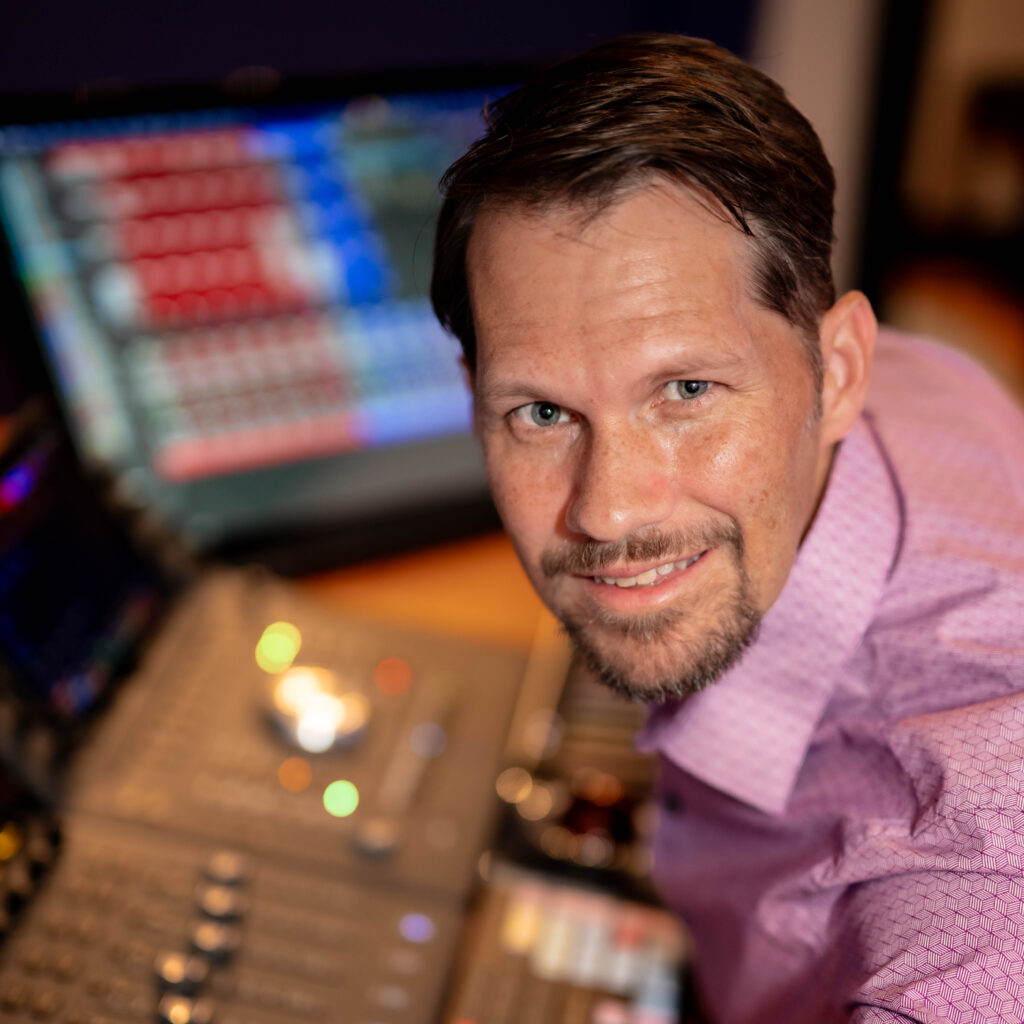
Michael Strickland is a passionate advocate for music education and accessibility, leveraging his expertise in music technology to create innovative learning and performance environments. As a member of the MIDI Association, he participates in the Music Education and Accessibility Special Interest Groups, where he promotes the use of MIDI as a tool for enhancing musical expression and inclusion. He is also a skilled performer, engineer, and researcher, with a diverse background in physics, music, and improvisation. He is honored to serve as a judge for the MIDI Innovation Awards and celebrate the creative potential of MIDI.
Brian Walton– Director of Riban Ltd
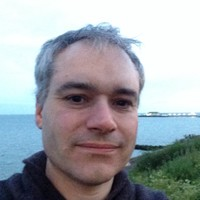
I am one of the lead developers of zynthian and of riban modular and the director of riban ltd.
I have previously worked in the broadcast industry, delivering control and monitoring interfaces for visually impaired users and improving access to various production tools.
I know that improvements to a product’s accessibility improves workflows for all of its users and that considering the access to all elements of a product, for all users at the earliest stage of design is the best way to deliver a product that works best for the widest audience. This is not just a social benefit, it is good business practice. Whilst engaging where necessary with product modifiers (such as screen readers), I much prefer to design products that work for each user’s ability. I consider what interface the users can use and how they can access the features of a product. That includes forgetting about GUI for totally blind users, reconsidering tactile controls for users without physical reach or dexterity, designing workflows with appropriate levels of complexity for users with different cognitive abilities, etc.
All of these considerations, and more should be fitted into as many of our products as we can. The core learning is that user interfaces may be significantly different for different users of the same product, to provide a similar user experience.
I have done this in the past and strive to do so with the projects I work on now and in the future. It is this experience, skillset and aspiration to improve musicians experience that attracts me to MASSIG.
Design for all and all benefit.
Sam Prouse- Music Technologist
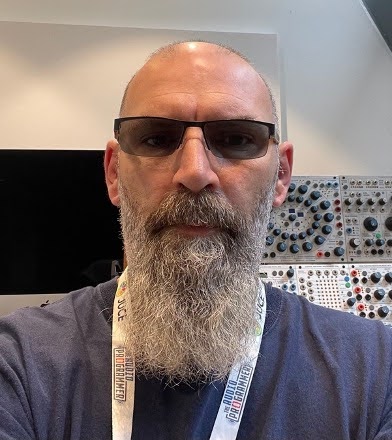
Samuel Prouse is a passionate music technologist whose journey with sound began in the vibrant 1980s, inspired by the iconic synths that defined the era. Growing up, He channelled this passion into building rigs, DJing, and live performances, initially as a hobby. In 2008, a deep love for music technology led to a bold career shift, prompting him to pursue formal education in the field. However, just before beginning these studies, life took an unexpected turn with the sudden loss of sight in the left eye, later leading to a diagnosis of multiple sclerosis. By the end of his BTEC studies, He was registered visually impaired, which brought unique challenges to his educational journey and professional aspirations.
Despite these obstacles, Samuel demonstrated remarkable resilience, earning a foundation degree, a BA Hons, and an MSc in Music Technology. Throughout this academic journey, Samuel explored the creative implications of device interfaces, both hardware and software, with a particular focus on visual accessibility. In 2021, when JUCE released version 6.1 with enhanced accessibility features, he developed skills in C++ and interface design, driven by a commitment to improving accessibility in music technology.
After graduating with distinction, Samuel ‘s PhD bursary proposal was accepted, allowing him to focus his research on universal design concepts within the music technology industry. As an active member of the Music Accessibility Standard Special Interest Group, Samuel has found a collaborative space to share innovative ideas and concepts, further strengthening his research. Being part of such a committed group has provided constant inspiration to develop new ways of interacting with music technology. Today, he is dedicated to pioneering new ways of interacting with music technology, ensuring that the industry evolves to be more inclusive and accessible for all.
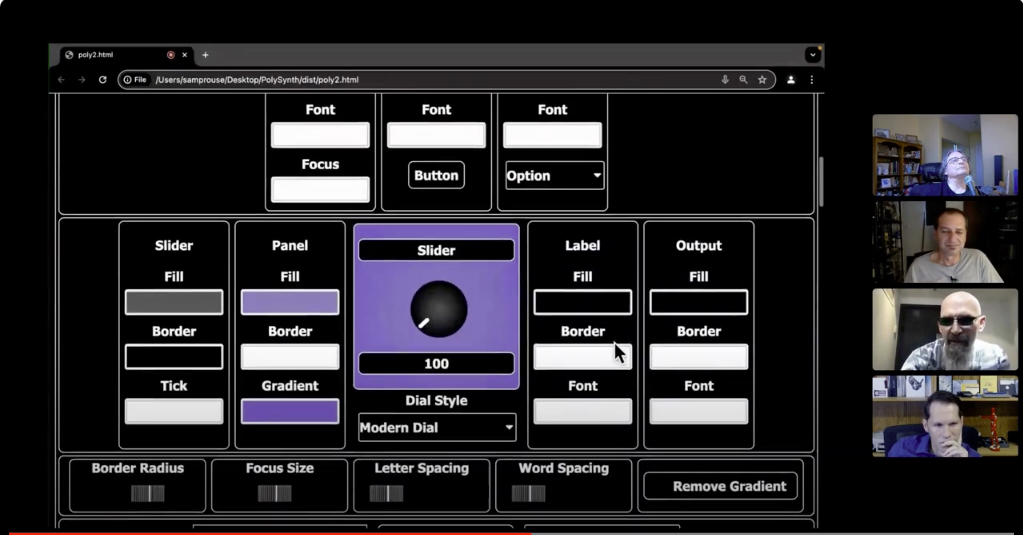
Same Prouse Highlights Music Accessibility on YouTube
Music Accessibility at Music China and ADC
We are planning a number of upcoming Music Accessibility events – one at Music China in October and then another led by Jay Pocknell at Audio Developers Conference in November.
Here is a promo video for the event at Music China and then a list of recent posts.
